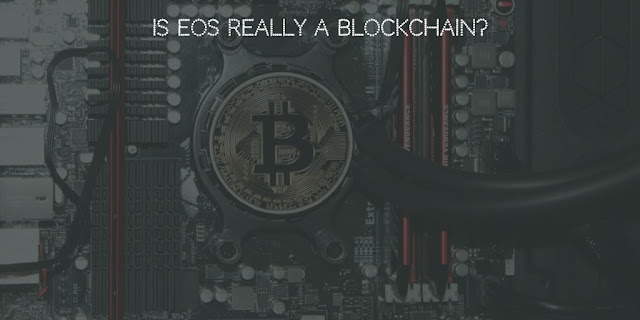Is EOS really a Blockchain?
ConsenSys recently commissioned a thorough benchmarking of EOS, which is a rival to Ethereum. EOS, worth $4 billion only months ago, as it turns out, may not be a blockchain at all.
An experiment conducted by the benchmarking firm known as Whiteblock, recently concluded that the EOS token (and its RAM market), might not exactly be a blockchain but rather a cloud service designed for computation built on a centralized premise. This is reflected by the absence of certain characteristics present in any blockchain such as immutability.
“Through practical testing and experiments in a controlled laboratory setting, this research provides a thorough and objective model of [EOS’] design, performance, and economics to present a reference for the blockchain community,” declares the paper, which Whiteblock shared directly with Hard Fork.
Of course, there is a huge difference in which EOS operates from Ethereum and Bitcoin, the most significant one being how it decides who should be the ones to validate blocks and get the rewards for doing so. Compared to traditional blockchains such as Ethereum, which allow everyone to contribute to the network empowerment process, EOS is selective on who can process the transaction through a process known as the Delegated Proof-of-Stake.
During this so-called election, each EOS token contributes to one vote, effectively translating to more control with people having more tokens. To conduct this experiment, Whiteblock says it built a replica of the EOS which it is now claiming that operates exactly like the real network.
“It runs the exact same software. The block producers within the Whiteblock environment perform the same functions a block producer would perform in the main net,” Zak Cole, Whiteblock’s chief technology officer told Hard Fork. “We provision nodes within a controlled test environment, configure the network conditions between these nodes in order to emulate real-world performance, and automate their process and actions so we can observe their behavior and measure their performance in a deterministic manner.”
Furthermore, they added, “EOS is not a blockchain, rather a distributed homogeneous database management system, a clear distinction in that their transactions are not cryptographically validated,” Whiteblock argues. “EOS block producers are highly centralized and users can only access the network using block producers as intermediaries. Block producers are a single point of failure for the entire system.”
Whiteblock's benchmarks also revealed that the transactions which can be processed by the network is drastically lower than the initial market claim and never exceed 250 transactions per second even when under operating under optimal settings such as zero latency and packet loss.
Though other testers have reported the speed of the network to be around 4,000 TPS. The EOS whitepaper declares that one day, the network will be able to process millions of transactions per second.
“During tests with real-world conditions of 50 [milliseconds] of round-trip latency and 0.01 percent packet loss, performance dropped below 50 TPS, putting the system in close proximity to the performance that exists in Ethereum,” Whiteblock claims.
Other blockchains such as the popular Bitcoin can process up to 7 TPS, whereas Ethereum is capable of handling around 20 TPS.
One should note that EOS is not new to controversy at all, with the launch of its mainnet proving to be a complete disaster, lasting over a week and block producers arguing whether it was even ready to go live at all.
ConsenSys, which is responsible for commisioning the study, is, however, one of the biggest investors in EOS's biggest rival, Ethereum. It is interesting to note that EOS itself is built on the Ethereum blockchain and initially started out as an ERC-20 token.
The full report can be read from the link enclosed.
PC: Pablo, Unsplash
Never miss an update. Subscribe and follow to stay informed. Delivered Every Tuesday.
We hate spam too, we will never share your details.

Anurag Chawake
Opinions expressed by techsutram contributors are their own. More details
I am an Engineering Student with a keen interest in Blockchain, Cloud Computing, AI, ML and related startups. I am currently working with Techsutram as a Writer/Intern.
Weekly Newsletter
Never miss an update. Subscribe and follow to stay informed.
Delivered Every Tuesday.
Delivered Every Tuesday.
Thank you! You have successfully subscribed to our newsletter.
We hate spam too, we will never share your details.





No comments:
Post a Comment
Your valuable comments are welcome. (Moderated)